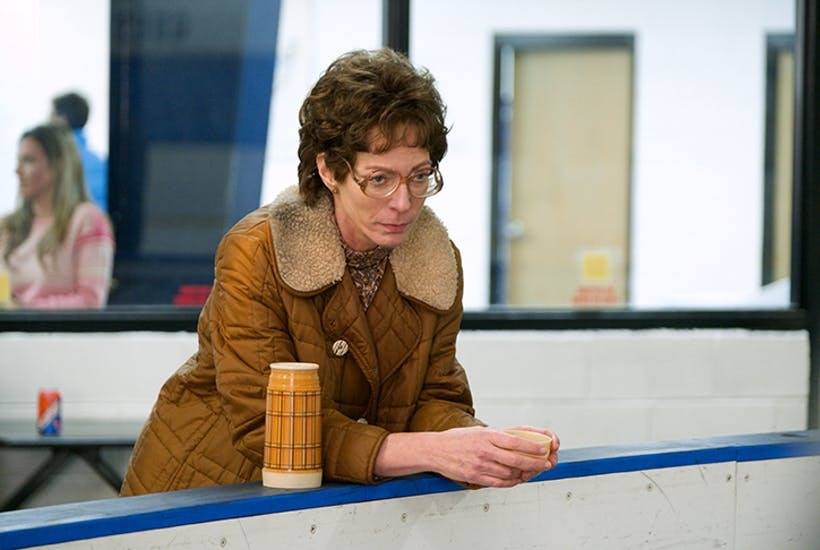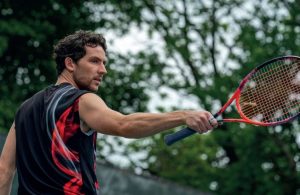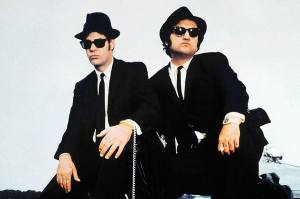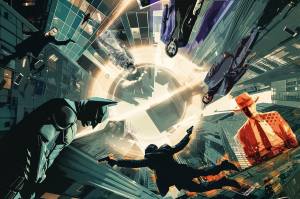Films about the Winter Olympics don’t grow on conifers. Twenty-five years ago there was Cool Runnings about the Jamaican bobsleigh team. It took many years for Eddie the Eagle to reach the screen. Both were cockle-warming comedies about implausible Olympians who embody the ideal that participation is all. Only last week Elise Christie, the British speed skater who kept tumbling in Pyeongchang (and Sochi), hoped that ‘Reese Witherspoon’ would play her in the movie. In the mean time, the latest Olympiad has flushed out two more biopics on ice.
I, Tonya tells of Tonya Harding’s catastrophic career. Like Monica Lewinsky, Harding is a public figure whose epitaph, thanks to a single headline, has already been carved. She may have been bullied by her termagant mother LaVona and battered by her husband Jeff, but she will always be remembered for an attack on the knee of her peachy rival Nancy Kerrigan weeks before the ’94 Games in Lillehammer. I, Tonya is Harding’s belated absolution and it holds up a sprightly middle digit to her future obituarists.
There is finally no knowing how much Harding knew about the Kerrigan attack, and so Steven Rogers’s script wisely hands the story over to a squabbling bunch of unreliable narrators who each say their piece direct to camera. They make for quite a menagerie of grotesques. LaVona (Allison Janney) has tubes feeding both nostrils and a pecking parakeet on her shoulder. Jeff the slap-happy husband (Sebastian Stan) wears the shifty air of the guilty-as-charged. Harding’s self-described bodyguard Shawn (Paul Walter Hauser) has the look and IQ of a dunkin’ doughnut.
There’s never any doubt whose side you’re meant to be on. Margot Robbie plays Harding as a feisty survivor whose triumph was to triple-Axel her way out of the trailerpark. Kerrigan, who barely speaks, didn’t have to wait tables or sew on her own tacky sequins. Harding sometimes lets off a rifle at home, but hers is a mainly sweet nature. LaVona reckons she has to be goaded out of it to skate better, like a pocket Incredible Hulk, so in one scene she slips greenbacks to a man who has been hurling rinkside abuse.
Janney has been cleaning up in awards season as the cussing mother from the very pit of hell. ‘You fuck dumb, you don’t marry dumb,’ she counsels at her daughter’s wedding, as Tonya escapes from one violent abuser to shack up with another. (The father has long since done a runner.) It’s a glorious turn, but the rawest red meat of Janney’s performance is packed into a subtler scene towards the end, when LaVona beats a path through the doorstepping press to betray her daughter one last heartbreaking time.
I, Tonya, directed by Craig Gillespie, is not quite a gold-medal masterpiece: it’s slightly too long, skates ribaldly over domestic abuse, and is uncertain how to conclude. As happens in Hollywood, Robbie is taller and lovelier than her subject, but she beautifully captures Harding’s wide-eyed yearning to excel despite forbidding odds. When she lands the triple Axel (with the seamless help of CGI), her sheer exultation is infectious. And she is better on the ice than Emma Stone is on a tennis court.
From Lillehammer we skate backwards towards Innsbruck in 1976, when the British ice dancer John Curry won gold. The Ice King is a deftly crafted portrait of a melancholy pioneer by sports specialist James Erskine (One Night in Turin, Sachin). His collation of letters, archive clips and fresh interviews tallies the agonies Curry endured, from the moment he was forbidden to take up ballet as a boy. The father who thwarted him later committed suicide (a trauma that merits more exploration than it gets here).
Curry sublimated his desire for self-expression into a sport which, more than any man before, he turned into a ravishing art form. In Innsbruck he overcame a clodhopping Soviet rival only because, on a judges’ panel with a communist majority, a Czechoslovak with a conscience broke rank. With that winner’s medal hung round his neck, Curry was free to become a Nureyev on skates who took his own ice ballets to the West End, Broadway and beyond. As star and choreographer of a never-ending tour, he shouldered a huge creative and commercial burden. His two outlets were lashings of sex and being unkind to his female skaters if they gained so much as an ounce. He died of Aids in 1994, the same year it all went wrong for Harding.
Curry and Harding hail from different planets. His story is essentially tragic, hers comic. And yet they were supremely good at the same thing. One day they’ll make for the oddest double bill about figure skating on thin ice.


















